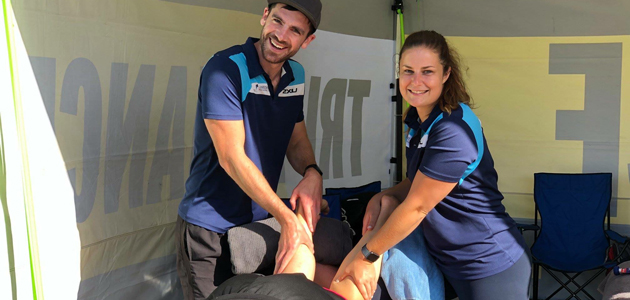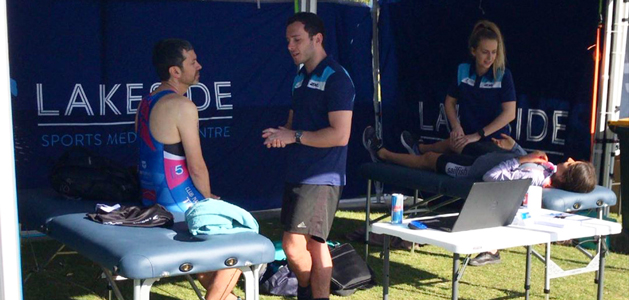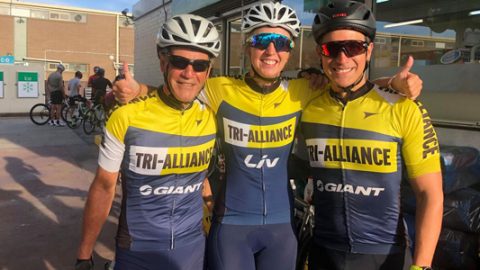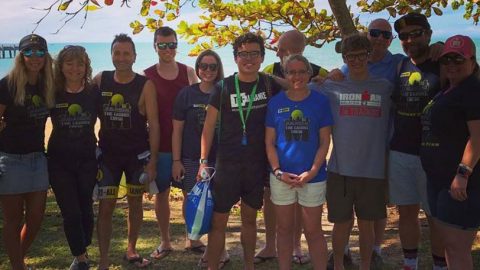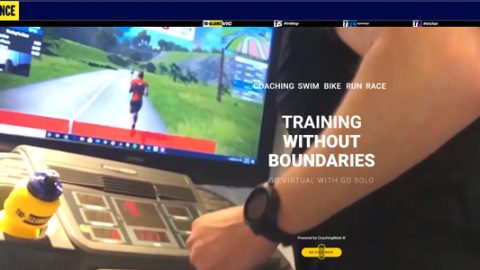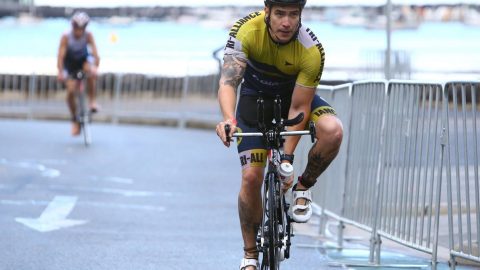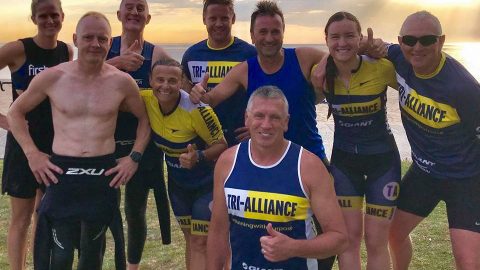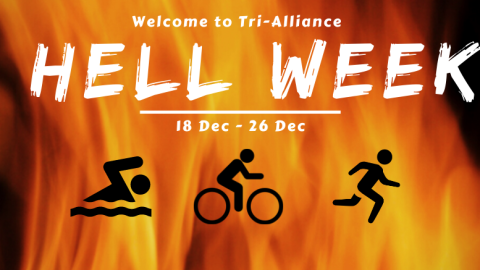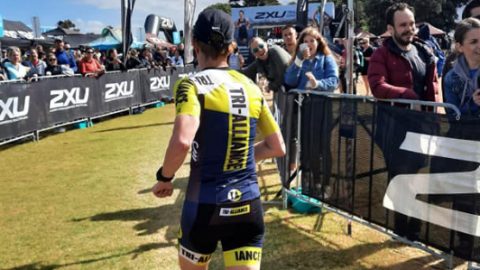What does a Physiotherapist do?
They help you recover from injury, reduce pain and stiffness, increase mobility and prevent further injury. They listen to your needs to tailor a treatment plan specific to your condition, lifestyle, current training regime and planned training plan and upcoming races. Physiotherapists are trained to assess your condition, diagnose the problem, and help you understand what’s wrong. The following are common treatment methods used by physiotherapists:
- exercise programs to improve mobility and strengthen muscles
- joint manipulation and mobilisation to reduce pain and stiffness
- muscle re-education to improve control
- soft tissue mobilisation (massage)
- acupuncture and dry needling
- hydrotherapy
- If needed, guidance around short term training modifications to improve injury recovery.
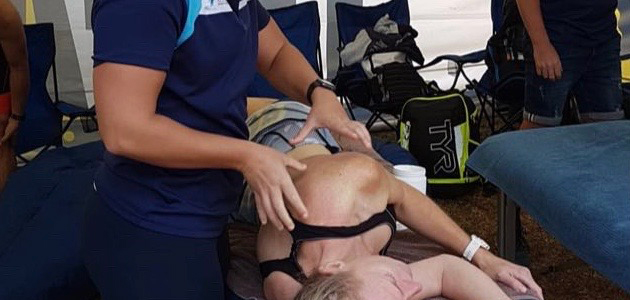
What does a Myotherapist DO?
Myotherapist provide assessment, treatment and rehabilitation for a wide range of musculoskeletal pain and associated conditions. Although, you don’t need to have pain to visit a myotherapist. Myotherapist also work to restore optimal activity, reduce the likelihood of injuries and keep you performing at your best. The following are common treatment methods used by myotherapist:
- massage in their treatments, when warranted
- dry needling
- thermo and electro-therapeutic techniques
- exercise/stretching prescription
- education about pain management
- load management
- activity modification and/or lifestyle modification.
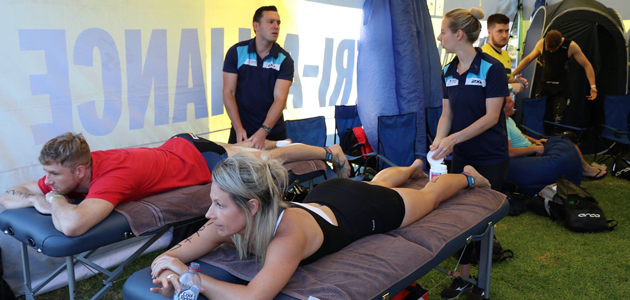
Physiotherapy Vs Myotheraphy for Triathletes
- It is important for triathletes to maintain their physical health to complete the necessary training for triathlons. Seeing a myotherapist on a regular basis can give you added performance benefits and also assist in you in the training recovery process.
- Injuries are common when first starting training for a triathlon and if injuries arise you should seek the consultation of a physiotherapist to allow them to help you recover from the injury and seek advice on how best to keep your training up while your injured to not do further damage.
- “Maintenance” of ongoing or old injuries is important when training for a triathlon. Given the amount of training required it is common to find old injuries resurface or niggling issues crop up. Physiotherapists and Myotherapist will often work together to determine your best treatment strategy. This may mean a few sessions with a physiotherapist and then you continue maintenance with a myotherapist or vice versa. These maintenance sessions are a vital component of your training plan as they will allow you to train at your best, manage any issues that arise and then compete at your best.
Written by Jordan Cook – Physiotherapist (B.Physio, APAM)
